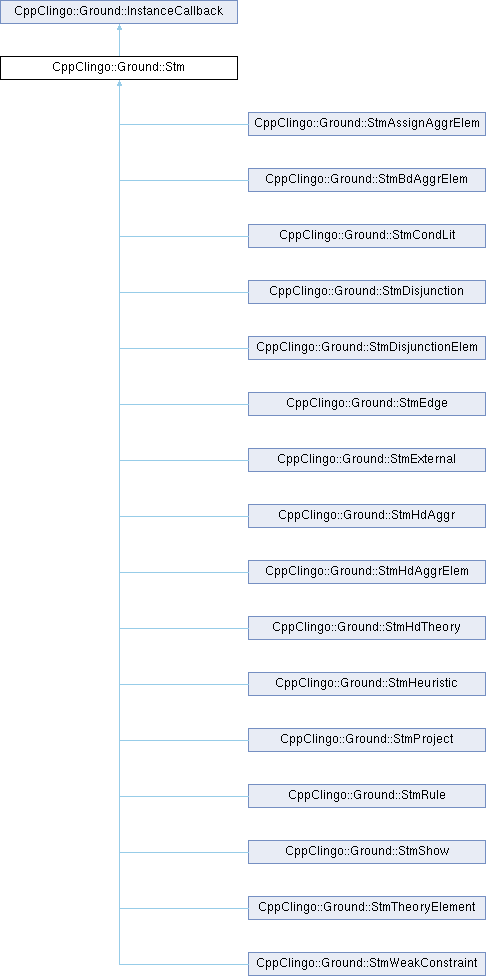Loading...
Searching...
No Matches
CppClingo::Ground::Stm Class Referenceabstract
Base class for groundable statements. More...
#include <statement.hh>
Inheritance diagram for CppClingo::Ground::Stm:

Public Member Functions | |
| auto | body () const -> ULitVec const & |
| Get the body of the statement. | |
| auto | important () const -> VariableSet |
| Get the important variables in the statement. | |
 Public Member Functions inherited from CppClingo::Ground::InstanceCallback Public Member Functions inherited from CppClingo::Ground::InstanceCallback | |
| virtual | ~InstanceCallback ()=default |
| Destroy the callback. | |
| void | init (size_t gen) |
| Notify a statement that instantiation starts. | |
| auto | report (EvalContext const &ctx) -> bool |
| Report an assignment giving rise to an instance for a statement. | |
| void | propagate (SymbolStore &store, OutputStm &out, Queue &queue) |
| Notify a statement that instantiation has finished. | |
| auto | priority () const -> size_t |
| The priority of the callback. | |
| void | print_head (std::ostream &out) const |
| Print representation for debugging. | |
| auto | is_important (size_t index) const -> bool |
| Check if the literal with the given index is important. | |
Friends | |
| auto | operator<< (std::ostream &out, Stm const &stm) -> std::ostream & |
| Print the statement. | |
Detailed Description
Base class for groundable statements.
Member Function Documentation
◆ important()
|
inline |
Get the important variables in the statement.
This comprises all variables that have to be bound to provide relevant instances. Relevant important variables from the body are gathered separately. For example, normal rules should provide the variables in the rule head, and integrity constraint can return an empty set.
The documentation for this class was generated from the following file:
- clingo/ground/statement.hh